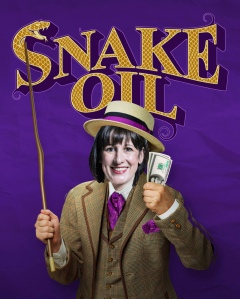(This item first appeared in the Brighton Argus on 3rd April 2024)
Whenever politicians say “There is no magic money tree”, they are treating the electorate as children and idiots. And all who use this pathetic, empty phrase should forfeit the right to be regarded as serious politicians because it closes down legitimate debate on their political priorities.
The politician who most famously used the phrase was Theresa May in 2017 when attacking Jeremy Corbyn. It has subsequently been used by Rishi Sunak and, most recently, by Sir Keir Starmer and Angela Rayner. Labour is also prone to say that the Conservatives have “maxed out the government’s credit card”, an equally stupid concept. The government does not have a credit card and government finances are not the same as those of a household, itself another simplistic and wrong concept favoured by politicians. Proof of this is that there is always money to fight wars.
The household comparison dates back to Margaret Thatcher who, as far back as the 1979 general election campaign, said: “Any woman who understands the problems of running a home will be nearer to understanding the problems of running a country”. Running a home and running the country are not the same, but what an inspired election slogan!
There is nothing wrong with a country borrowing for investment, even at times of financial instability. What is not right is to borrow to fund tax cuts or day-to-day spending, at least in the long term. I can think of many occasions when nations, in the wake of economic turmoil, have borrowed to fund huge public investment. One example, in the wake of the 1929 financial crash, was President Franklin D. Roosevelt’s ‘New Deal’ that promoted economic recovery and put Americans back to work through Federal activism. New Federal agencies controlled agricultural production, stabilised wages and prices, and created a vast public works programme for unemployed people.
The post-war Labour government, at a time of huge debt, made massive investment in creating the NHS, expansion of state education, the building of council housing, and so on. There was a bipartisan approach, not least in housing. During the 1950s, Churchill’s Conservative government delivered new council housing at a rate not seen before or since. Investment in public housing through subsidising the cost of building new homes pays for itself over the years, with lower rents and less public subsidy to help people meet overblown rents. The economics of investment in housing is actually very simple. Investment in bricks and mortar retains value, whereas rent subsidies do not. This bipartisan approach was broken by Margaret Thatcher who began the dismantling of the social housing sector through the politically popular but economically disastrous Right to Buy programme.
A new bipartisan consensus in favour of financial austerity has been created following the election of the Cameron government in 2010, and Labour front benchers have meekly performed lemming impersonations by following the Conservatives (and until 2015, the Lib Dems) over the austerity cliff. Historians will look back at this era with astonishment – that the major parties were so economically short-sighted and inept that the wellbeing of the nation was sacrificed in the pursuit of power.
If, as expected, Labour forms the next government, it will have voluntarily tied its own hands by adopting Conservatives financial rules. Labour supporters are not enthused by the wooden and lacklustre Sir Keir Starmer – “Sir Crasharooney Snoozefest, the Human Bollard” as Boris Johnson called him. They are destined to be as disappointed by the failure of Labour in government as they have been appalled by the Conservative’s demolition derby antics.
 Following the 2007-08 global financial crisis, the country needed investment but got austerity. When the country needed “strong and stable Leadership” as promised by Theresa May, we had a succession of circus clowns prime ministers unable and unwilling to invest in public services or to control the privatised monopolies. Successive Conservatives promised growth but had absolutely no idea how to achieve it. Now Rachel Reeves, acting like a latterday snake oil saleswoman, promises growth but rules out investment (not least in housing), promoting a valueless and fraudulent remedy that is destined to fail.
Following the 2007-08 global financial crisis, the country needed investment but got austerity. When the country needed “strong and stable Leadership” as promised by Theresa May, we had a succession of circus clowns prime ministers unable and unwilling to invest in public services or to control the privatised monopolies. Successive Conservatives promised growth but had absolutely no idea how to achieve it. Now Rachel Reeves, acting like a latterday snake oil saleswoman, promises growth but rules out investment (not least in housing), promoting a valueless and fraudulent remedy that is destined to fail.
Labour will win the forthcoming general election, not because the electorate has any high hopes that “things can only get better” (to quote the 1997 Blairite strap line) but because voters are sick to the back teeth of the chaos of Conservative ‘rule’. And when Labour inevitably fails in government, it will be responsible for a massive swing to the right, by-passing a Conservative Party in mortal decline, to Reform UK and, even more worryingly, to parties on the extreme right.











